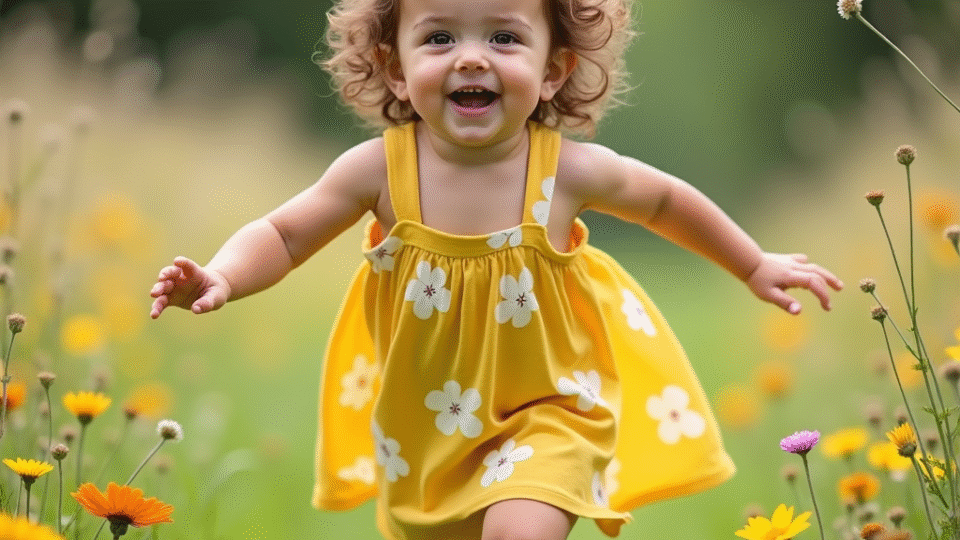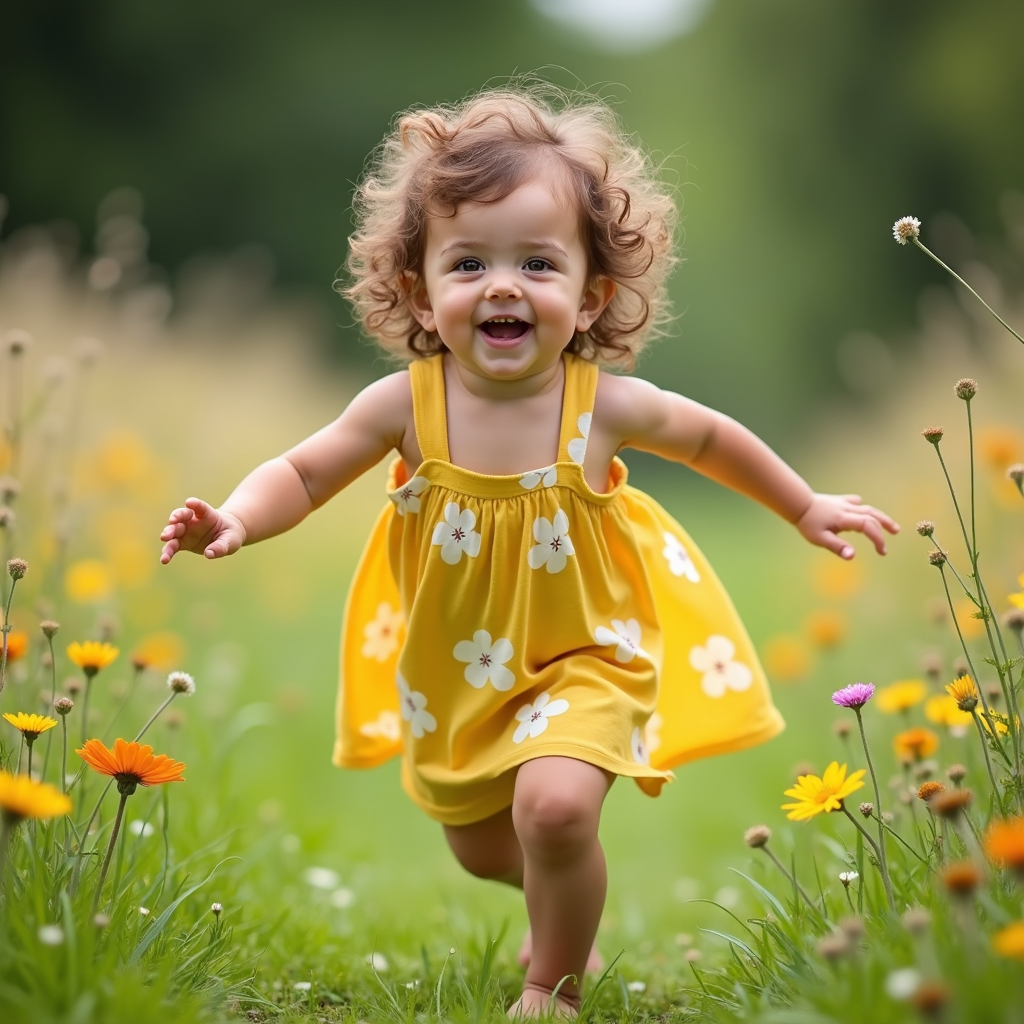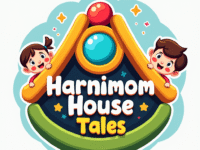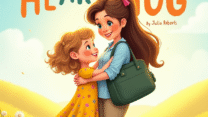
When Does a Baby Become a Toddler? My Personal Journey Through Toddlerhood
I’ll never forget the moment my son wobbled across the living room floor on his tiny legs. Until that day, I still thought of him as my sweet little infant—cuddly, babbling, and so dependent. But when he stood up on his own, something shifted. It wasn’t just a milestone; it was a transformation. Suddenly, I realized we were stepping into a brand-new stage of parenting: toddlerhood.
Like most parents, I had a million questions swirling in my head: What age is a toddler? Is a 1-year-old considered a toddler? When does a baby officially stop being an infant?
If you’ve ever googled these questions at midnight while rocking a fussy little one, you’re not alone. I did too. And after asking my pediatrician, scrolling through parenting forums, and chatting with other moms at the park, here’s what I’ve learned—both from the experts and from living through it myself.

What Age Is a Toddler?
The term toddler usually refers to children between 1 and 3 years old. The word itself comes from “to toddle”—those wobbly, unsteady first steps.
For me, the shift happened right around my son’s first birthday. One week he was crawling like a determined little puppy, and the next he was grabbing the coffee table, standing proudly, and letting go with this triumphant grin. I realized my baby was no longer just lying on a playmat cooing at toys—he was trying to conquer the living room.
And that’s toddlerhood in a nutshell: curiosity, independence, and endless movement.
Outdoor Toys for Toddlers: Fun, Safe, and Skill-Building Playtime
Is a 1-Year-Old a Toddler?
Yes… and no. The 1-year-old stage is what I like to call “the in-between zone.”
At 12 months, your child may still feel very baby-like. They might still nurse or take bottles, crawl, and rely on you for almost everything. But by 18 months, most children are walking, climbing, babbling actual words, and asserting independence with a very confident “NO!”
When my son turned 1, I couldn’t stop calling him my “baby.” But by 18 months, when he started feeding himself crackers, chasing pigeons at the park, and throwing mini tantrums because I wouldn’t let him chew on my phone charger… well, there was no denying it. He was officially a toddler.
Infant vs. Toddler: What’s the Difference?
The best way to tell the difference is by looking at developmental milestones:
| Stage | Age Range | Main Focus | Classic Traits |
|---|---|---|---|
| Infant | 0–12 months | Growth, bonding, motor skills | Rolling, crawling, babbling, first steps |
| Toddler | 1–3 years | Independence, mobility, learning | Walking, talking, tantrums, self-feeding |
The change hit me hardest the first time my son threw a tantrum because I peeled his banana “wrong.” (Yes, toddler parents everywhere know this pain.) Infants don’t care about bananas. Toddlers? Oh, they care. A lot.
That’s when you know: you’re in toddlerhood.
Toddlerhood Milestones (1–3 Years)
Every child grows at their own pace, but here are some of the big toddlerhood milestones most parents will notice:
- Walking and running (sometimes falling flat on their faces, but always bouncing back).
- First words and early sentences (“More cookie” was my son’s first masterpiece).
- Climbing everything—chairs, sofas, stairs, your leg. Nothing is safe.
- Feeding themselves with fingers, spoons, or—let’s be honest—throwing food at the dog.
- Pretend play—my son used to “cook” with plastic blocks and proudly serve me block soup. Delicious.
- Big emotions—from belly laughs to full meltdowns in under 30 seconds.
This stage is exhausting and magical at the same time. Some days, I laughed so hard at my son’s silly dance moves; other days, I collapsed on the couch after chasing him in circles.
Is a 3-Year-Old or 4-Year-Old a Toddler?
This was one of my biggest questions as a parent. Here’s what I found:
- 3 years old – Usually considered the tail end of toddlerhood. My daughter at 3 still had toddler traits—tantrums, naps, clinginess—but she was also learning songs and drawing little stick people.
- 4 years old – Most experts call this “early childhood” or “preschooler.” At this age, kids are more social, independent, and school-ready.
So if your 3-year-old still feels like a toddler, you’re right. If your 4-year-old seems more like a “big kid,” you’re right too. Toddlerhood is a fuzzy category—it doesn’t end overnight.
How to Help Infant Crawl: A Parent’s Funny, Messy, and Joyful Guide
When Does Toddlerhood End?
Most sources agree toddlerhood ends around age 3. By then, many kids are:
- Toilet-trained (or close to it).
- Speaking in full sentences.
- Showing problem-solving skills.
- Preparing for preschool or structured play.
That said, toddler-like behavior can sneak into the early 4s. My niece was 4 when she threw a tantrum over the wrong color cup. Toddler energy? Still alive and well.
Personal Stories From My Toddler Journey
Because sometimes real life explains it better than a definition:
- The Walking Wobble: My son’s first unsteady steps ended with him falling… right into the laundry basket. He popped up smiling, like it was the best game ever. That was the day I realized toddlerhood was going to be one big adventure.
- The Banana Drama: One morning, I peeled a banana the “wrong” way. My toddler wailed as if I had ruined his entire childhood. Five minutes later, he was happily eating the exact same banana. Classic toddler logic.
- The Nap Negotiator: Around age 2, my son started “bargaining” at nap time: “No nap. Five more minutes. Milk first.” Toddlers are tiny lawyers in pajamas.
Quick Age Reference Table
| Stage | Age Range | Main Features |
|---|---|---|
| Infant | 0–12 months | Crawling, babbling, bonding, first steps |
| Toddler | 1–3 years | Walking, talking, tantrums, independence |
| Preschooler | 3–5 years | Social skills, routines, learning letters/numbers |
| Childhood | 5+ years | Friendships, school, growing independence |
FAQs About Toddlers
1. What age is considered a toddler?
Generally, 1 to 3 years old.
2. Is 18 months a toddler?
Yes! Eighteen months is peak toddlerhood—lots of walking, climbing, and nonstop curiosity.
3. When does a baby stop being an infant?
Usually around their first birthday (12 months).
4. Is a 4-year-old a toddler or a child?
Most experts say a 4-year-old is a preschooler/child, not a toddler.
5. What stage comes after toddlerhood?
Preschool/early childhood (ages 3–5).
6. What are toddlerhood milestones?
Walking, talking, pretend play, feeding themselves, independence, tantrums.
7. Are 2-year-olds still toddlers?
Yes—2 years old is smack in the middle of toddlerhood.
8. When does toddlerhood begin and end?
It starts around the first birthday and usually ends by age 3.
9. Do toddlers always crawl before walking?
Not necessarily—some skip crawling and go straight to walking. (My niece did, and it was equal parts amazing and terrifying.)
10. Why do toddlers throw tantrums?
Because they’re learning independence but don’t have the words or emotional regulation yet. Imagine wanting a cookie but only being able to scream about it. That’s toddlerhood.
Final Thoughts: Embracing Toddlerhood
Looking back, toddlerhood was messy, loud, and full of giggles. It went by faster than I imagined. One day I was rocking an infant at 2 a.m., and the next I was chasing a toddler through the park, begging him not to climb the slide backwards.
If you’re wondering whether your baby is now a toddler, the answer is probably yes—especially if they’re toddling, talking, or testing every boundary in sight.
Don’t stress too much about the labels. Infant, toddler, preschooler—they’re all just words. What matters is soaking up every stage, because before you know it, you’ll be asking, “When did my toddler become a preschooler?” And then, before you blink, you’ll be Googling, “When does preschool end and childhood begin?”
Parenthood is one long journey of transitions. Toddlerhood is just one of the most unforgettable (and hilarious) stops along the way.
Disclaimer
I am not a medical professional. This blog is based on my personal parenting experiences and general information from trusted parenting resources. Every child develops at their own pace, and milestones can vary widely. If you have concerns about your child’s growth or development, please consult your pediatrician or a qualified healthcare provider.














Leave a Reply